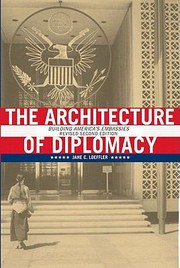
China Confidential: American Diplomats and Sino-American Relations, 1945-1996
Series: Diplomats and Diplomacy Author: Tucker, Nancy Bernkopf Category: Diplomats -- United States -- History -- 20th century., Diplomats and Diplomacy Publisher: Columbia University Press (2001) ISBN: 978-0231106313 Pages: 569 Share: More DetailsDrawing upon fifty ADST-created oral histories and one from Berkeley’s Bancroft Library, Nancy Bernkopf Tucker weaves together a wide r range of interviews with key players in making and executing U.S. policy toward China since World War II. Interviewees included Arthur Hummel, James Lilley, John Stewart Service, Winston Lord, Marshall Green, Harry Thayer, Chas. Freeman, and John Holdridge. Professor Tucker provides clarity and continuity with her introductions and conclusions and arranges portions of interviews around particular issues in loosely chronological sequence.
What emerges vividly are historical events such as Nixon’s trip to China, the Tiananmen Massacre, and the recurring Taiwan Strait crises, along with portraits of leading personalities in Sino-American relations such as Mao Zedong, Henry Kissinger, Zhou Enlai, Chiang Kai-shek, and Lee Teng-hui, among others. This rich array of interviews provides the context for understanding the otherwise baffling diplomatic interaction between the United States and China, shedding light on the circumstances under which difficult and crucial decisions were reached and revealing the background and biases of the people who made and carried out those policies.
Other Books From - Diplomats -- United States -- History -- 20th century.
Editorial Reviews
“An insider’s view of how American policy toward China has been made over the last seven decades, China Confidential is an indispensable source for anyone wishing to understand the formal communiqués, dispatches, and memoranda that constitute the raw materials of diplomatic history and international relations.” ––MARK GALLICCHIO, Villanova University
About the author
Tucker, Nancy Bernkopf
Professor Tucker teaches in both the History Department and the School of Foreign Service at Georgetown University. She is a leading authority on Sino-American relations and the author of Patterns in the Dust: Chinese-American Relations and the Recognition Controversy, 1949–1950...
Read More
 Mongolia and the United States: A Diplomatic History
Mongolia and the United States: A Diplomatic History  American Ambassadors: A Guide For Aspiring Diplomats
American Ambassadors: A Guide For Aspiring Diplomats  The Architecture Of Diplomacy: Building America’s Embassies
The Architecture Of Diplomacy: Building America’s Embassies